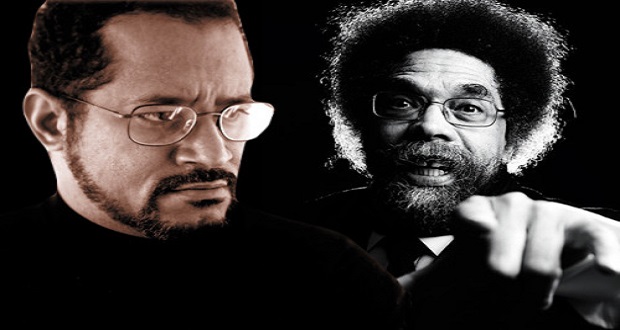I cogitate I
tune up to
terms of pre
vailing stand
ards
accept
ability
enunci
ation
-Layli Long Soldier, from Whereas
From SMS language to the proliferation and co-opting of grassroots terminology to the more fraught debates about personal pronouns and English as our national language, recent times have seen language take on an outsized importance in our culture wars, as scholars and laypeople alike have levied judgments about how our language is evolving and if it even should be.
Let’s be clear here, though: Generally speaking, linguists and grammarians may have academic or intellectual fondness for a particular rule or convention (see: the Oxford comma), but by and large they understand and appreciate that English is fluid—it always has changed and, as long as it’s healthy and flourishing, will continue to evolve.
Instead, the self-appointed guardians standing sentinel at the gate of professionalism and tradition, protecting the English language from distasteful incursions on their sensibilities, are those who are invested in maintaining the advantages that a robust formal language education has provided them, and the systems to which it has granted them access. They exert their power by demanding adherence to Standard English and othering those who speak different dialects.
The guardians of professionalism, protecting the English language from incursions on their sensibilities, are just maintaining the advantages from a robust formal education and the systems to which it granted them access. Click To TweetBut therein lies the crux of the matter: Standard English is simply a dialect of English, not some ideal static prototype of the language. While Standard English has been socialized to be the primary dialect in formal settings such as government, schools, and workplaces, it’s not any more “correct” than, say, Virginia Piedmont (“reckon” and “y’all) or Chicago Urban (“gaping” instead of “rubbernecking”) dialects. And yet it is common practice in our schools and places of business to judge a candidate’s fitness for a job or a student’s readiness for a grade-level promotion based on their ability to write and speak Standard English.
Ultimately, language exists to facilitate more nuanced and specific communication between and amongst people.
It’s certainly true, too, that communication skills are a crucial skill for nearly all people, and even more so for those who work with a broad, diverse coalition of people, as is often the case in the United States. In this way, Standard English is an asset to our culture, as its ubiquity provides a, well, standardized way for folks to communicate across differences. This asset becomes a liability, however, when effectively adhering to Standard English becomes synonymous with, or even supersedes, communicating effectively. Indeed, the modern centering of Standard English fluency is inherently inequitable.
In a country where mastery of Standard English is closely linked to one’s geographic location, we have distinctly, if not subconsciously, created a dichotomy that grants easier access to power (application to public schools, institutes of higher education, stable employment) to those who have internalized, and who abide by the strictures of, Standard English—if not in everyday life, at least in deference to the societal norms of “professionalism.”
Mastery of Standard English is closely linked to one’s geographic location, and we have created a dichotomy that grants easier access to power to those who have internalized, and who abide by the strictures of, Standard English. Click To TweetWhile creating this inequity may have originally been unintentional (which is a debatable point), as linguist Peter Trudgill notes:
“We can say that Standard English was selected…as the variety to become the standard variety precisely because it was the variety associated with the social group with the highest degree of power, wealth and prestige. Subsequent developments have reinforced its social character: the fact that it has been employed as the dialect of an education to which pupils…have had differential access depending on their social-class background.”
Standard English, then, is an insidious example of how even systems as seemingly benign as language can be weaponized, however unwittingly, as tools of oppression.
Standard English, then, is an insidious example of how even systems as seemingly benign as language can be weaponized, however unwittingly, as tools of oppression. Click To TweetThe other side of this same coin makes the point more clearly: Those who object to new words being added to the lexicon and old words being given new meanings, as well as those who co-opt those words to diminish or invert their power, intentionally use our system of language as a weapon. Never mind, of course, that Shakespeare himself used “they” with singular antecedents. Or that you’d be hard-pressed to find more than a handful of people who object to phrases such as “chomping at the bit” or “wreck havoc.”
Those who object to new words being added to the lexicon and old words being given new meanings, as well as those who co-opt those words to diminish or invert their power, intentionally use our system of language as a weapon. Click To TweetIndeed, this selectivity in what counts as a linguistic abomination gives the game away: what these guardians of grammar truly object to isn’t the evolution of language; rather, it’s resentment borne of a perceived loss of power and influence. Spending decades becoming fluent in Standard English only to see it supplanted by text-speak and emojis, or to see it revised solely for the sake of inclusivity, can predictably cause the same sort of resistance in people that we see every day in DEI work.
This resistance can take less-obviously antagonistic forms, as well, such as Human Resources immediately discarding a resume that has a typo or misspelling, despite there being no evidence that spelling and intelligence are correlated in any way; and that spelling and grammatical errors may simply be the product of a qualified neurodiverse candidate or employee, rather than an incompetent one. Similarly, a candidate or employee who speaks in a different dialect or with an accent is often seen as less-qualified and effective than one who speaks Standard English, or codeswitches into it in the workplace. Like other aspects of diversity, however, these perceptions—beyond being prejudiced and inequitable—prevent organizations from putting together a diversely talented staff.
Resistance can take less-obviously antagonistic forms, such as HR immediately discarding a resume that has a typo or misspelling when this may simply be the product of a qualified neurodiverse candidate, not an incompetent one. Click To TweetThis gatekeeping becomes even more problematic when considering the fact that entire new dialects—if not languages—have popped up in recent years, in the form of text-speak and GIFs-as-language (or language supplements). Even stalwarts of the business world like Microsoft and Zoom have integrated emojis into their UI, while companies like Slack have made space for finding and embedding GIFs directly in their apps. There’s an inherent tension in this dichotomy wherein one must play by the dominant group’s rules (obeisance to Standard English) in order to get in the door, but once allowed in can freely indulge in the flouting of those rules in organization-sanctioned spaces.
There’s an inherent tension in this dichotomy wherein one must play by the dominant group’s rules (obeisance to Standard English) to get in the door, but once in can indulge in the flouting of those rules in org-sanctioned spaces. Click To TweetIt’s important to note here, however, that one’s loci of privilege greatly influences the extent to which they can do this—that is, a white man with a New England accent who calls a water fountain a “bubbler” is much safer in doing so than, say, a Black woman who speaks with a Southern drawl and says “y’all.”
The standards by which we judge communication and language skills—especially in the workplace or other “formal” settings—is completely disconnected from the lived reality of most people in the country. It is, quite frankly, absurd to discount a person’s intelligence or capabilities based on nonstandard use of English, especially in a society where periods are now considered aggressive in text messages and 80% of people use GIFs and emojis to clarify their communications.
And that, really, is the point: language in its ideal state is a living, breathing organism that reflects the diversity and richness of the cultures that speak it; but we instead treat speaking and writing Standard English as a rubric against which we erroneously measure aptitude and intelligence.
For the sake of equity, we need to move beyond the staid idea that Standard English is “correct” English; that codeswitching is the only path to effective cross-cultural communication (read: talking to white folks); and ultimately, if the purpose of communication skills generally, and language specifically, is to effectively convey meaning, then myopically focusing on the effective use of Standard English is decidedly missing the point. Languages, like cultures themselves, are rich and robust. Over the course of generations, they have continuously evolved to become ruthlessly efficient machines that can simultaneously be employed to create languorous, flowing prose that stirs the soul.
For the sake of equity, we need to move beyond the staid idea that Standard English is 'correct' English; that codeswitching is the only path to effective cross-cultural communication (read: talking to white folks). Click To TweetRather than allow outdated standards of language to dictate who is deemed good enough, let’s instead put Standard English to work for us, as just another tool in an ever-expanding toolset. For, truly, what is the danger of mis-conjugating a verb?
In any case, you might be asking, “Why were thirty-eight Dakota men hung?”
As a side note, the past tense of hang is hung, but when referring to the capital punishment of hanging, the correct past tense is hanged.
-Layli Long Soldier, from Whereas




















